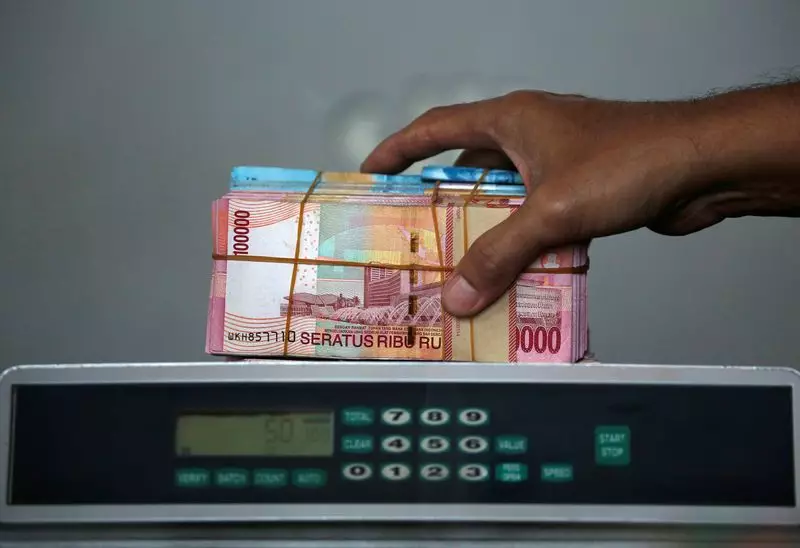Indonesia’s economy has been facing significant challenges due to the unwelcome plunge in its currency, the rupiah. As markets returned from a long holiday, the rupiah hit a four-year low against the dollar, causing concern among market participants. This decline, amounting to a 5.25% loss for the year, has led to speculations that Bank Indonesia (BI) might have to raise rates as a corrective measure. BI, whose main mandate is currency stability, has been grappling with the repercussions of the dollar’s surge and the impact it has had on the rupiah.
BI had been considering monetary easing later this year, with expectations of being among the first central banks in emerging Asia to cut rates. However, the recent developments have altered this trajectory, leading to the possibility of a rate rise as early as next week. This change in stance is indicative of the challenges faced by BI in maintaining currency stability amidst external pressures. As the central bank reviews its policy, the need for a rate hike has become a topic of discussion among experts and analysts in the field.
Indonesia’s high-yielding bond market, once a popular choice for carry-trade investors, has lost its appeal due to currency volatility and diminishing spreads. The interventions conducted by BI, including direct rupiah buying and government bond purchases, have helped curb the rupiah’s depreciation to some extent. However, as foreign investors shy away from Indonesian assets, the central bank is faced with the task of balancing various intervention tools to stabilize the currency. The coordination with stakeholders, such as state-owned enterprises like Pertamina, plays a crucial role in managing the demand for dollars and preventing excessive volatility.
Looking ahead, the outlook for Indonesia’s economy remains uncertain, with factors like Fed rate cuts and global economic conditions influencing the pace of recovery. Some investors are optimistic about the potential for a reprieve in the rupiah once the Fed eases its policy. However, others remain cautious, citing the need for a more robust monetary policy framework to address the challenges posed by external factors. The balance between domestic economic conditions and external pressures will be crucial for Indonesia’s monetary policy moving forward.
Indonesia’s economy is at a critical juncture, with the recent currency plunge adding a layer of complexity to its monetary policy decisions. The need for currency stability, coupled with the challenges posed by external factors, highlights the importance of a proactive and strategic approach by Bank Indonesia. As the central bank navigates through these turbulent times, the support of stakeholders and a comprehensive policy framework will be essential in addressing the current economic challenges and fostering long-term growth and stability in Indonesia.

